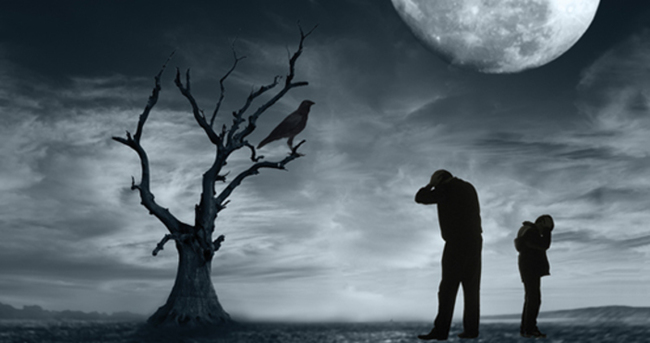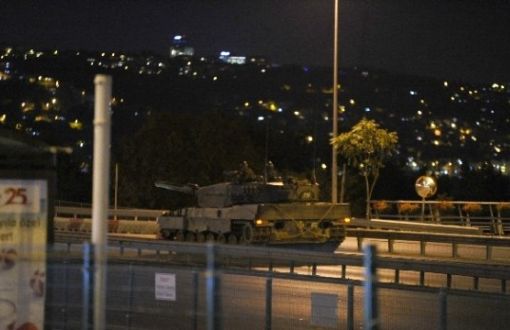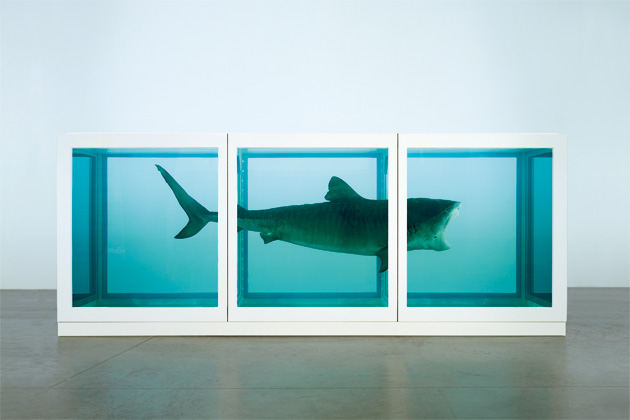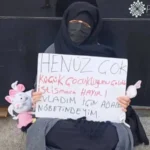İdil Önemli
The Turkish original of this article was published as ‘Bir Çinli gene de bir Çinli midir?’ on 5th July 2015.
It's the sense of touch.
What?
In any real city, you walk, you know?
You brush past people, people bump into you.
In L.A., nobody touches you.
We're always behind this metal and glass.
I think we miss that touch so much,
that we crash into each other,
just so we can feel something.
— Crash (2004), directed by Paul Haggis.
I was walking along the Caddebostan Waterfront when someone drew near to me. She had turned her head to stare me in the face. She was sticking her neck way out to keep staring cheekily and insolently. Just like someone beating impatiently on a door to have it promptly opened, she was petulantly pleading with her looks “to be noticed.” “Look at me,” her eyes kept saying; “look at me and see this me that is staring scornfully at you.”
She had a need to be noticed, it seems.
Leaving aside her inner rage against religion and the religious that she was rather awkwardly trying to hide behind her political preferences, what sort of psychological craving was this? Her face looked like she was in her sixties. If asked, she might respond that she had a husband and children, as well as neighbors with whom she could have tea. All the same, from everything about her you could tell that she was caught in a vortex of loneliness. Maybe there was nobody in her life that she could really touch. Maybe she had never known what it might be to touch another person’s world. It was evident that rubbing against the walls imprisoning her extremely narrow life, her ego had accumulated a lot of rashes and blisters.
It could be that her ever-growing tumor of arrogance did not allow her to touch another’s world. The soul-softening light of friendship, kinship, fraternity, camaraderie could not penetrate her thick skin. Sagging under the burden of having had to live and age in the poisonous gloom of her seemingly full but actually utterly empty and dark inner world, her worn out spirit just wanted to feel something, anything, and it was me who happened to be there: Somebody with a headscarf, walking along minding her own business.
Yes, I was the one who happened to be there and she had already mentally prepared, way in advance, the choicest epithets that she would soon be hurling at me; very probably she had enacted this scene many times before.
When I turned toward her to ask, in the softest tone of voice that I could muster, whether she had mistaken me for someone else, at first she did not know what to do, pulling her head down low between her shoulders while quickening her steps. A moment later, seeming to have gathered her courage she turned her face to me yet again to hiss out her words of hatred like a handful of mud: “Whom should I mistake you for, you that are all Arabs! You are nothing but a bunch of thieves!” Subsequently she quickened her steps yet again; she might have started running if she did not think it too undignified. Her first objective was to stun me. She was hoping to kill and take the life in me as manure for her own infertile soil.
Secondly, she wanted to force me, too, to spout words of anger and hatred at her so that she could feel just any vibrations stirring her soul.
Against all the fascism that flowed out of her mouth, the only thing I knew was never to give these types what they wanted, never to feed the darkness of their souls.
In response, I only called after her in a calm and collected voice: “But oh, shame on you; these are words that belong with a fascist; how can you say such things about people whom you don’t know, whom you haven’t met before, about whom you are absolutely clueless? This is nothing but a blatant hate crime.”
Later, when I thought over what had happened, my mind went back to the opening exchange in the movie Crash. Failing to touch others, residents of this planet were choosing to collide with them.
Such is life, that that same week it confronted me with yet another scene of a similar sort. Now, however, the protagonist of the story was not a secularist but a nationalist-conservative citizen.
I was in Kadıköy, and had just finished running all my errands. I hailed a taxi to get home. There was a traffic jam. It was stop and go without ever covering any real distance. The driver was haggard from having been at the wheel since early morning. Looking utterly exhausted, he turned the volume up a bit when the news came on the radio. And he started carrying on about politics as the only thing common to everybody living in Turkey. The topic kept changing from one item to the next in line with whatever it was that the newscaster happened to be saying until it was the turn of the persecution suffered by Muslims in Turkestan, whereupon he narrated a recent incident to which he had been a party.
He had picked up a roadside customer, and the man had turned out to be Chinese. “Auntie, if I had known he was Chinese I wouldn’t have taken him on,” he said with a deep sigh; “because of him I almost ended up in jail, and then my conscience kept gnawing at me for the rest of the way.”
“Nothing bad came of it, I hope,” I said; “just what was it that happened?”
“Let me tell you exactly what I went through,” he said, and proceeded with his tale: “When I realized that the man was Chinese, I promptly called 155. When a cop took the phone, ‘Hello bro,’ I said, ‘you know that in East Turkestan the Chinese are massacring Muslims, right?’ And what do you think the cop said?”
“What did he say?” I responded.
“‘So what can we do, should we be going there?’ So I said to him: ‘No, of course not, but while you are not going there I want to consult you about something. Now I; what has happened is that I have a Chinaman in my taxicab as my customer. Now if I were to beat up this Chinese guy and smash his face in from nose to mouth, what would be my penalty?’”
He stopped to huff and puff a bit before continuing: “If that cop had not kept talking to me for a while and succeeded in dissuading me, I would be in jail right now, you understand. But he left no open door whatsoever. If he had just shown me the slightest bit of green light, I would have smashed that Chinaman’s face in right then and there. But the cop did not give me any leeway at all. And at the end of the day, I too have my family and children, auntie, don’t I?”
It was clear from this last “auntie, don’t I” that he was still pondering “should I have done it anyway?” like a fishbone that had caught in his throat and would not be removed.
“Now now, I am so glad that you didn’t do anything of the sort,” I blurted out. “Moreover, how can you be sure; perhaps that Chinaman is at least as much against the persecution over there, and as much saddened by it as you. If you had harmed him in any way, you would have penalized an innocent Chinese person for an act of oppression perpetrated by the state. Look, in such situations I always remind myself of the gist of a verse from the Koran: Nobody else can be held responsible for what is one person’s fault.”
He paused to consider. “You are right auntie,” he said a bit bashfully. Unfortunately though, he did not remain abashed for long.
“Auntie,” he said sure of himself, “you know what; at the end of the day a Chinaman is still nothing but a Chinaman.”
There was no point in arguing after that.
This was the truth that I held on to: Neither that secularist woman was right in accusing me of being “all Arabs, nothing but a bunch of thieves,” nor the nationalist-conservative cab driver in his cocky know-all self-assurance that “at the end of the day a Chinaman is still nothing but a Chinaman.”
The only saying that I was putting my trust in was that “Nobody else can be held responsible for what is one person’s fault.”
Yazıyı beğendiysen, patronumuz olur musun?
Evet, çok ciddi bir teklif bu. Patronumuz yok. Sahibimiz kar amacı gütmeyen bir dernek. Bizi okuyorsan, memnunsan ve devam etmesini istiyorsan, artık boş olan patron koltuğuna geçmen lazım.
Serbestiyet; Türkiye'nin gri alanı. Siyah ve beyazlar içinde bu gri alanı korumalıyız. Herkese bir gün gri alanlar lazım olur.


















